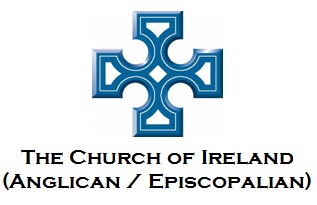 Much of what is known as ‘Anglican’ worship, like that of other churches, is based on traditions stretching back for centuries. The Anglican Communion welcomes new members, but faces a serious difficulty: to a newcomer, much of what we do in church looks puzzling or entirely incomprehensible. This web page attempts to explain the basics of Anglican Christian belief, and to serve as an introduction to what we do, and why. There are sections on general Christian beliefs, on the Anglican Communion in particular, and on what actually goes on in a church service. There is also a glossary of terms here.
Much of what is known as ‘Anglican’ worship, like that of other churches, is based on traditions stretching back for centuries. The Anglican Communion welcomes new members, but faces a serious difficulty: to a newcomer, much of what we do in church looks puzzling or entirely incomprehensible. This web page attempts to explain the basics of Anglican Christian belief, and to serve as an introduction to what we do, and why. There are sections on general Christian beliefs, on the Anglican Communion in particular, and on what actually goes on in a church service. There is also a glossary of terms here.
The most vocal Christians are often the minorities who hold extreme views, and so the general public view of Christianity is not necessarily accurate. (Some Anglicans are actually nice, sensible people.) Please read on – we hope you might be pleasantly surprised by what you find.
 What is the Church for? Why not be a Christian in private?
What is the Church for? Why not be a Christian in private?
The Church fulfils three important functions. Worship is one of them. We don’t worship God because we have to, or because we’re afraid of what God might do to us if we don’t. We worship God because we believe that God fully deserves our respect and love. Worshipping God is simply the most appropriate behaviour for the beings God has created, and a church service is an effective and time-honoured way of carrying out this behaviour.
 The second purpose of the Church is teaching. Partly this is something we do to each other – passages from the Bible are read out in church, and sermons comment and enlarge on them and other issues, and relate Christianity to real life. But Christians also have a responsibility to make their own insights about God available to the rest of the world, and an organised Church can attempt to do this in ways that individual Christians cannot.
The second purpose of the Church is teaching. Partly this is something we do to each other – passages from the Bible are read out in church, and sermons comment and enlarge on them and other issues, and relate Christianity to real life. But Christians also have a responsibility to make their own insights about God available to the rest of the world, and an organised Church can attempt to do this in ways that individual Christians cannot.
 Our third purpose is fellowship. We are a community of people with a common goal, supporting and strengthening each other as we work towards that goal. An important part of Christian teaching is the need to have compassion for others, and so this, too, is an external as well as an internal activity. The Church provides material support for the needy, and it attempts to promote social justice to the rest of society.
Our third purpose is fellowship. We are a community of people with a common goal, supporting and strengthening each other as we work towards that goal. An important part of Christian teaching is the need to have compassion for others, and so this, too, is an external as well as an internal activity. The Church provides material support for the needy, and it attempts to promote social justice to the rest of society.
Who can come to an Anglican service?
Anyone! You don’t need to be an Anglican or even a Christian to come along. (Holy Communion, a ceremony which takes place during many of our services, is ‘technically’ restricted to baptised Christians: see here). Attending a service doesn’t commit you to anything. We will (hopefully) try to be friendly, but that’s all. You can become a Christian at your own pace.
 We don’t charge membership fees. (We’re always after donations, but how much you contribute is up to you, and entirely private!) There’s plenty of ceremony in a typical Anglican Communion, but we don’t have secret initiation rites or anything else scary or sinister. We don’t even have a dress code – people normally dress tidily for church, but you don’t have to wear a suit or a big flowery hat.
We don’t charge membership fees. (We’re always after donations, but how much you contribute is up to you, and entirely private!) There’s plenty of ceremony in a typical Anglican Communion, but we don’t have secret initiation rites or anything else scary or sinister. We don’t even have a dress code – people normally dress tidily for church, but you don’t have to wear a suit or a big flowery hat.
 Audience participation in an Anglican service isn’t particularly strenuous. The words of the service are provided, either in the Book of Common Prayer (2004) (Church of Ireland) or an equivalent, or on a piece of paper. If you’re not familiar with the service, just sit near the back and do what everyone else does. At a service of Holy Communion you can stay in your place when people go up to the altar to receive the bread and wine if you don’t want to take part in this section of the service.
Audience participation in an Anglican service isn’t particularly strenuous. The words of the service are provided, either in the Book of Common Prayer (2004) (Church of Ireland) or an equivalent, or on a piece of paper. If you’re not familiar with the service, just sit near the back and do what everyone else does. At a service of Holy Communion you can stay in your place when people go up to the altar to receive the bread and wine if you don’t want to take part in this section of the service.
